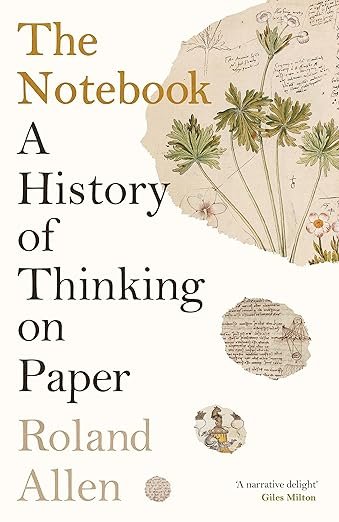This review was originally published in Teach Secondary magazine, and so is aimed at teachers rather than writers, but as writers are often called upon to speak in public I thought this might be useful for them too!
Read MoreIt was, surely, only a matter of time before someone would take Raymond Queneau’s idea of exercises in style and apply it to mathematics.
Read MoreThis beautifully illustrated volume has relevance to several different curriculum areas, containing as it does accounts of intrepid historical journeys that range from 16th century seafaring voyages to Arctic crossings and even the surveys undertaken to facilitate the moon landings.
Read MorePerhaps the second hardest thing for a writer to do (after commencing work in the first place) is to delete parts of what they’ve written.
Read MoreA book on temporal adventures may seem like an odd inclusion here, but it can actually be used in many ways.
Read MoreDavid Crystal has triumphed again. This is a fascinating book containing hundreds of concise entries on quirky occasions, literary facts and significant events.
Read MoreAt a time when even Noddy books have been declared ‘problematic’ due to their use of archaic terms such as ‘swot’ (since changed to ‘bookworm’), some of us might may feel the temptation to unleash our inner ‘Disgusted of Tunbridge Wells’ in response.
Read MoreIn Handwritten we get to see handwritten manuscripts by monarchs, poets, novelists, scientists and many others.
Read More“You’ve been speaking to that blasted Freedman, haven’t you?!”
Read MoreI’m familiar with a few of the stories in this volume, which features some well-known names such as Raymond Carver, George Saunders, Grace Paley, Ursula Le Guin and Susan Sontag.
Read MoreI love the subtitle: A history of thinking on paper (my emphasis). I do think there’s much to be said for writing on paper, and there is no paucity of research showing the benefits of analogue over the digital approach.
Read MoreA few months ago I wrote about Barnabees Books, in Westleton, Suffolk. It’s a lovely warm place, not only heat-wise but atmospherically, not least because of its delightful owner, Ty.
Read MoreSince I read Northanger Abbey when I was in my twenties, I have to say that in the interim it has much improved. Clearly, Jane must have taken a creative writing course or two because it is now much funnier, more cutting and more modern, what with her stepping outside the story to comment on her characters and the novel form itself.
Read MoreIf your interest in the Oulipo goes beyond simply trying out their techniques, and you wish to learn about the context in which it was conceived and the developments in went through, you will find this book very useful.
Read MoreA very timely publication. The first section is replete with anecdotes about trigger warnings and similar. Some of these are, in my opinion, ill-informed (such as the charges levelled against Jane Austen) while others are ridiculous (like the rewriting of parts of the Noddy books).
Read MoreThe Book at War is a fascinating study of how books and other reading matter have variously influenced politics, propaganda and history over time.
Read MoreElborough’s central premise is that artists’ travels have always influenced their art – albeit more obviously in some cases than others.
Read MoreThe shelves in libraries or bookshops labelled Science Fiction and Fantasy interest me only for the former, not the latter. Games like Dungeons and Dragons have never appealed to me, and much as I like maps and strange lands, the works of Tolkien leave me cold.
Read MoreWho would have thought that a material as commonplace as paper could have such a rich history and profound effect on our lives?
Read MoreAs someone who had little in the way of mathematical prowess at school, I initially opened Prime with some trepidation.
Read More


















